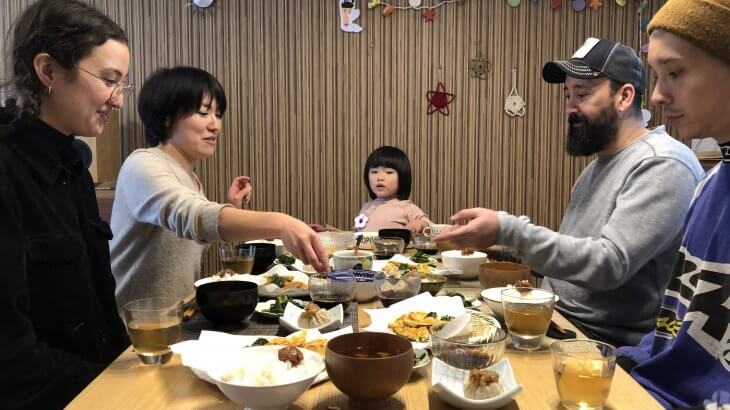Hi, I’m Mei! I work part-time with airKitchen here in Tokyo. I’m originally from Seattle, but moved to Tokyo in October 2019 and am excited (and incredibly grateful) to have found work that I’m passionate about.
Contents
A Little About Me
I’m also vegan, and I know from personal experience how challenging being vegan/vegetarian can be in Japan. While job searching after my move, I was researching Tokyo companies doing work around veganism and came across this article in the Japan Times: AirKitchen Plus: A new way to find vegan and vegetarian food in Japan.
Being passionate about cooking, veganism, and cultural exchange, I was beyond excited to learn about this service that offers a unique and intimate cultural exchange experience for both foreign travelers and Japanese hosts. Furthermore, airKitchen helps make Japan’s incredible food culture more accessible to those with dietary preferences like myself – whether vegan, vegetarian, halal, kosher, gluten-free… I sent airKitchen a cold email, not expecting a response, but was lucky enough to join the team a couple of months ago.
My airKitchen Experience: Vegan Cooking Class in Tokyo
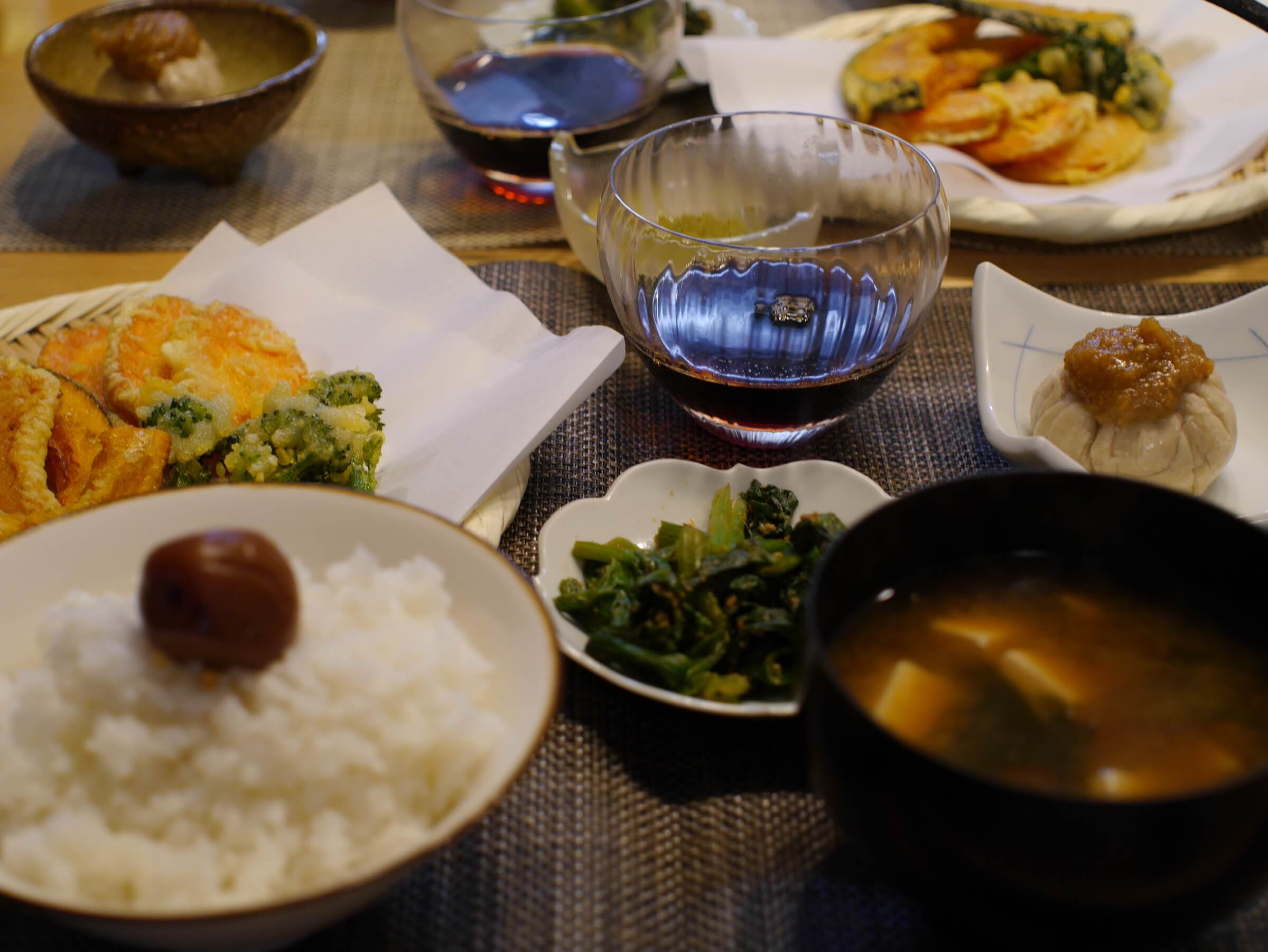
This past weekend, my friend and I participated in an airKitchen class ourselves, and I wanted to share our experience! We signed up for Yoko’s Shojin ryori for vegans and vegetarians with Tempura in Kanagawa – just about an hour train-ride outside of Tokyo. While I love the liveliness of Tokyo, it was nice to escape the city and venture into a slower, more residential area of Japan.
Our host, Yoko, and her husband and adorable child – who coincidentally shares my name – met us at the train station and took us to their home. My friend and I were joined by another guest from France for the class.
What We Cooked:
- Vegetable tempura
- Goma-dofu (sesame tofu)
- Boiled spinach with sesame dressing
- Miso soup
- White rice with homemade umeboshi
For those who don’t know, shojin ryori ( 精進料理)is a type of traditional Japanese cuisine historically consumed by monks and informed by principles of Zen Buddhism. It is usually vegan.
 Yoko has a plot in a nearby neighborhood community garden, and some of the veggies we cooked with were grown by her!
Yoko has a plot in a nearby neighborhood community garden, and some of the veggies we cooked with were grown by her!
Class Structure
1) After being picked up at the train station, we all headed back to Yoko’s home. She provided green tea and recipes of the dishes we were making in both English and Japanese. She, like all airKitchen hosts, speaks English. However, since the three of us wanted to practice our Japanese, Yoko and her family were kind enough to tolerate our poor Japanese and speak in a mix of English and Japanese with us.
2) Following the introduction to what we’d be making, we started cooking the dishes together! Considering the number of dishes we made – five total – it was impressive that we were able to finish all the cooking in under three hours. Yoko had prepared a schedule and some ingredients beforehand to help us cut, soak, cool, and otherwise prepare the food in the best order possible.
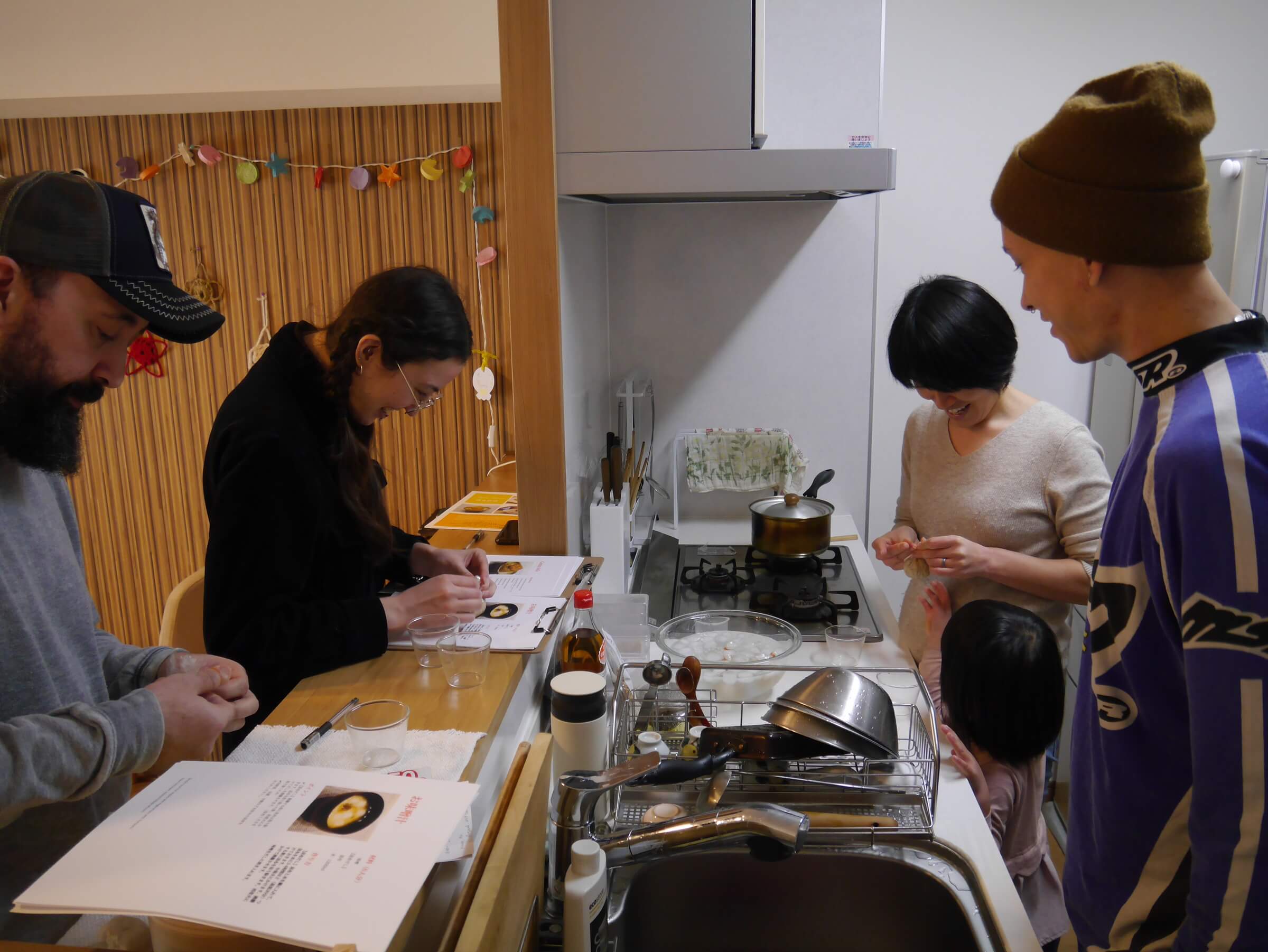
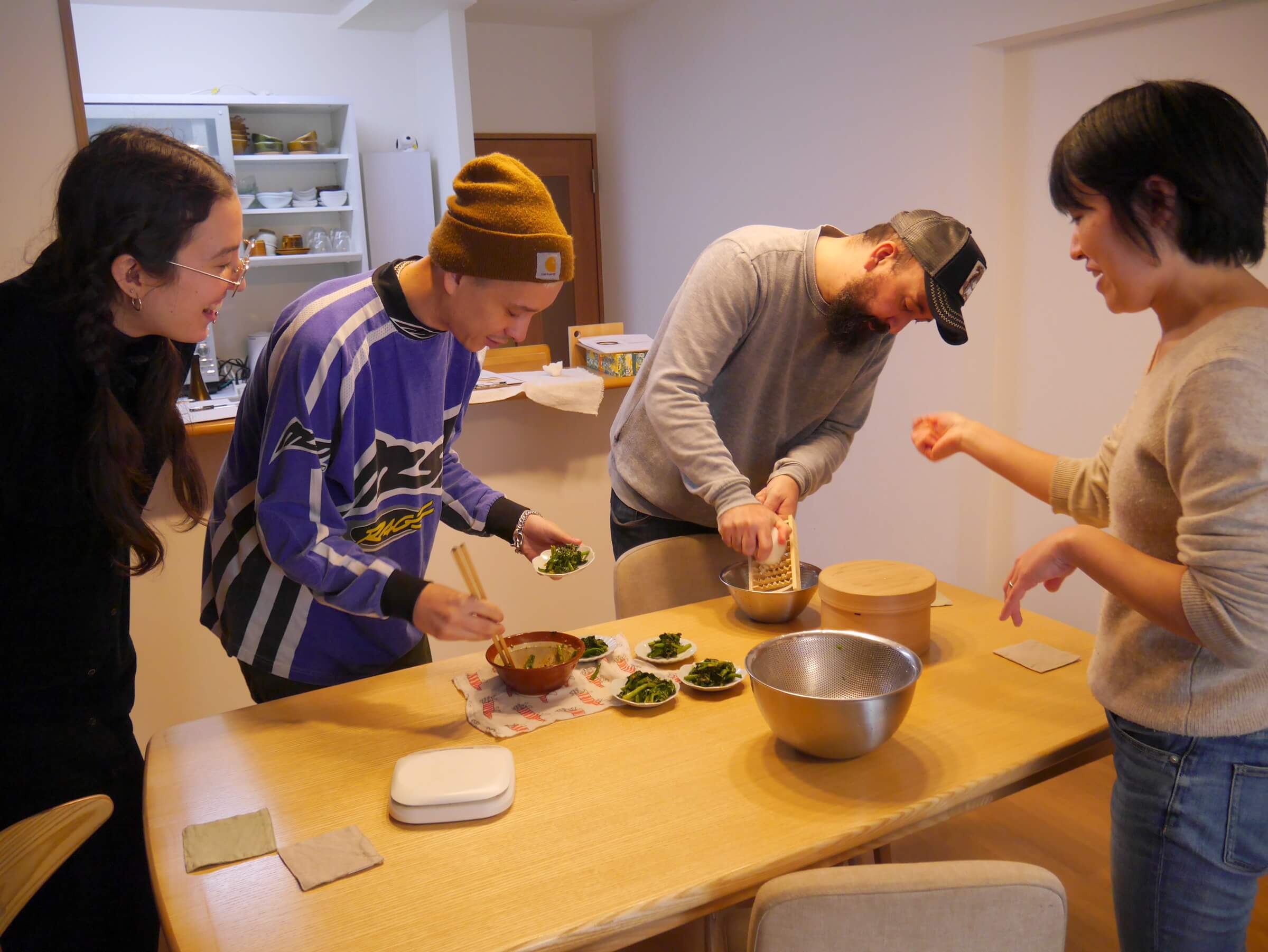
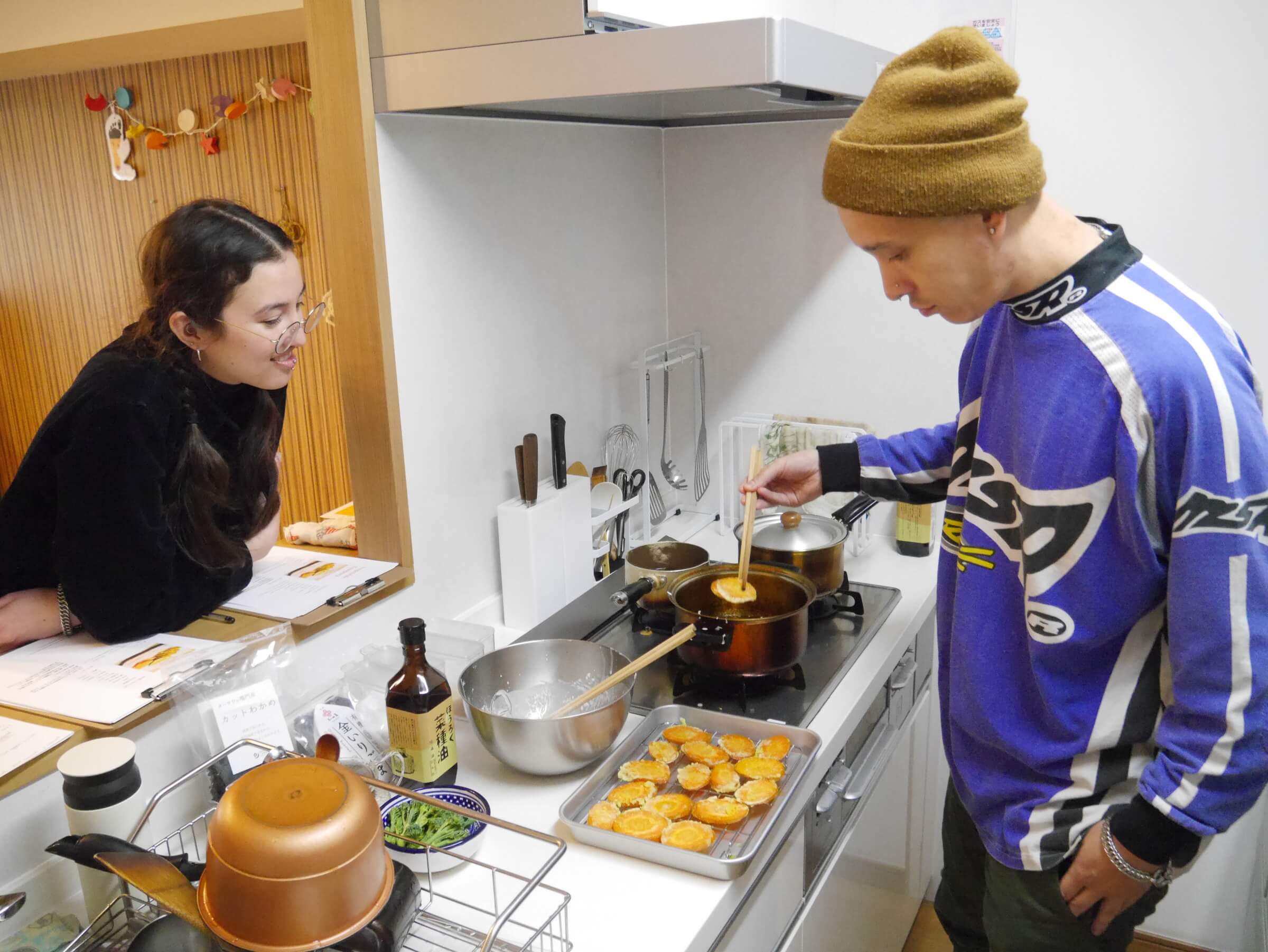
3) Together, we prepared servings for the six of us. Yoko taught us about how different dishes are positioned when being served in Japan – for example, miso soup is always placed to the right of the rice.
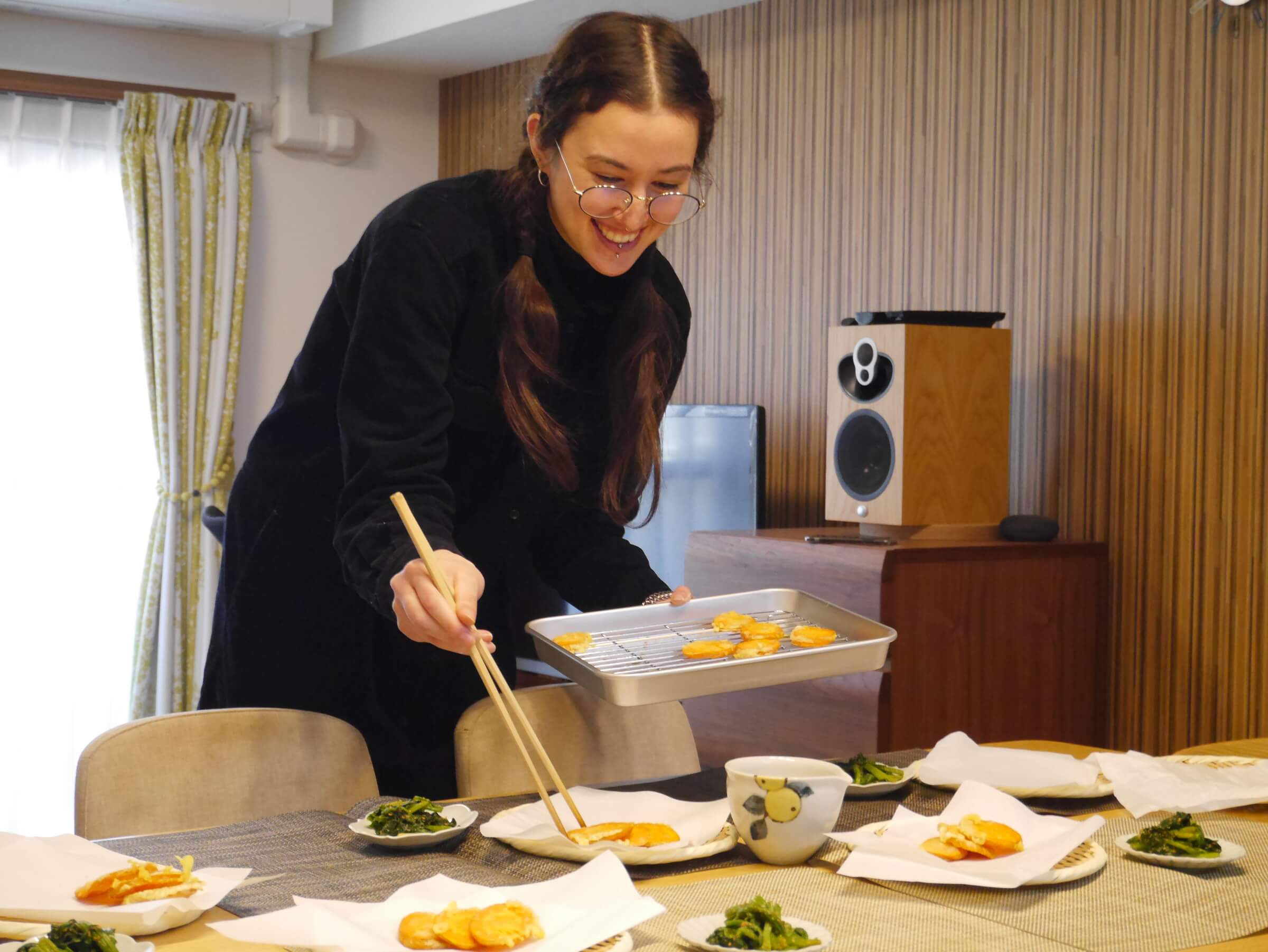
4) Then, we all sat down and enjoyed the meal we had created together! It was sooooo good. My favorites were the kabocha tempura and goma-dofu topped with an amazing miso-sesame sauce.
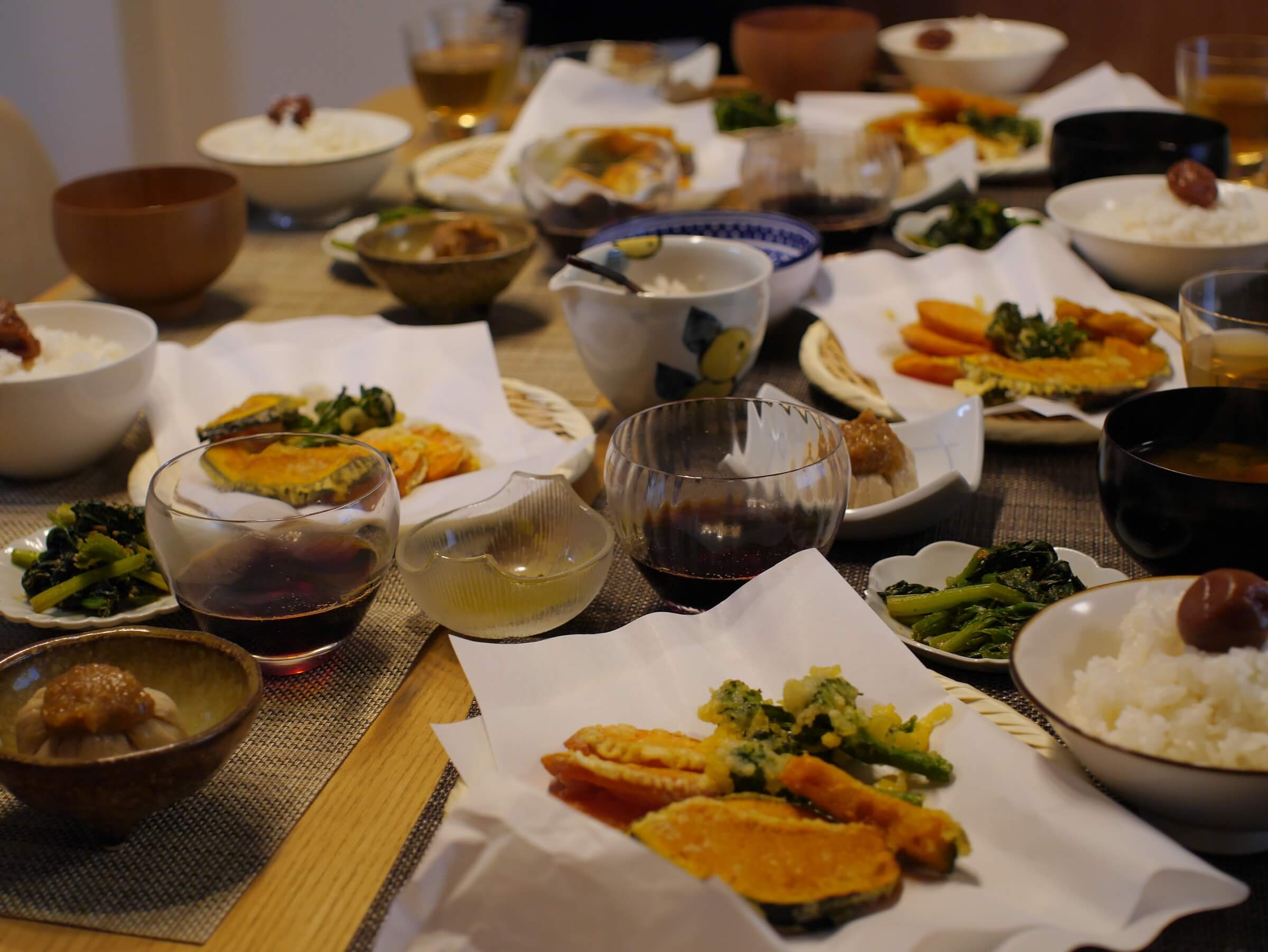
Thoughts on My Vegan Cooking Class in Tokyo
My airKitchen experience was a special and memorable one. I’m so grateful for hosts like Yoko that welcome foreigners into their home, teach them their recipes, and make special cross-cultural and culinary experiences like this possible. This rings especially true for vegans, vegetarians, and others with dietary preferences for which enjoying Japanese food can be difficult when traveling around Japan.
Some of the Highlights:
- Conversing with people I wouldn’t ordinarily encounter, across cultures. It was wonderful speaking with Yoko, her husband, and their child, along with the other guest from France. There’s so much to be gained from intimate and important cross-cultural interactions like these.
- Enjoying delicious, traditional, and vegan-friendly Japanese cuisine. I didn’t have to worry about egg in the tempura batter or dashi in the miso soup – which prevents me from eating these traditional Japanese dishes when ordinarily eating out in Tokyo.
- Catching a glimpse of an ordinary Japanese home and kitchen, as well as a feel for daily Japanese life beyond Tokyo’s busy streets.
- Learning about Japanese cooking ingredients, utensils, and methods, as well receiving recipes to take home (and replicate!). My friend and I liked the boiled spinach so much, we actually cooked it again for dinner that very evening.
- Yoko’s amazing homemade umeboshi, miso, and shoyu-mugi-koji that she generously shared with us. These home-fermented Japanese ingredients were ridiculously tasty.
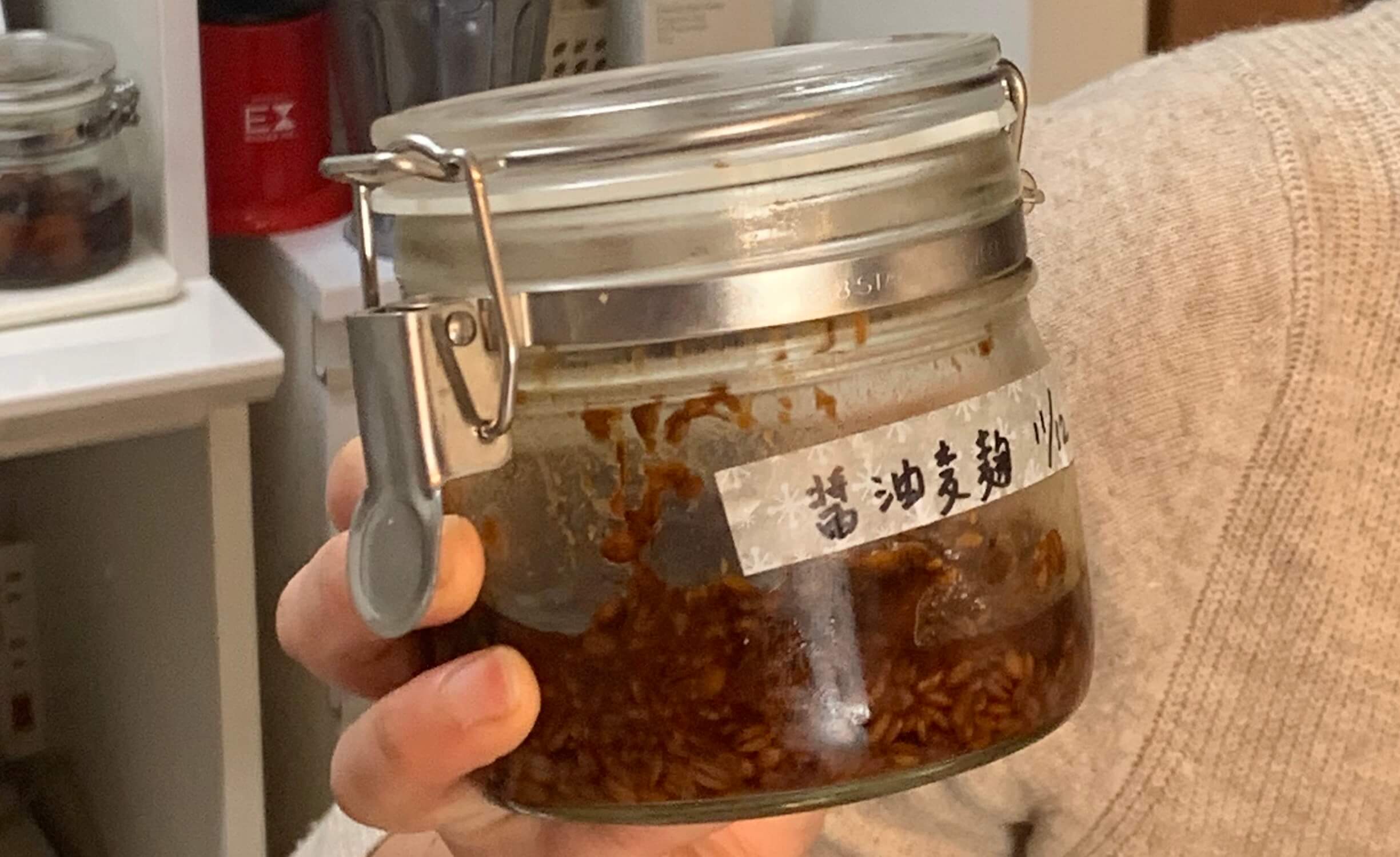
Thank you Yoko!
Learn more about Yoko’s shojin ryori class
